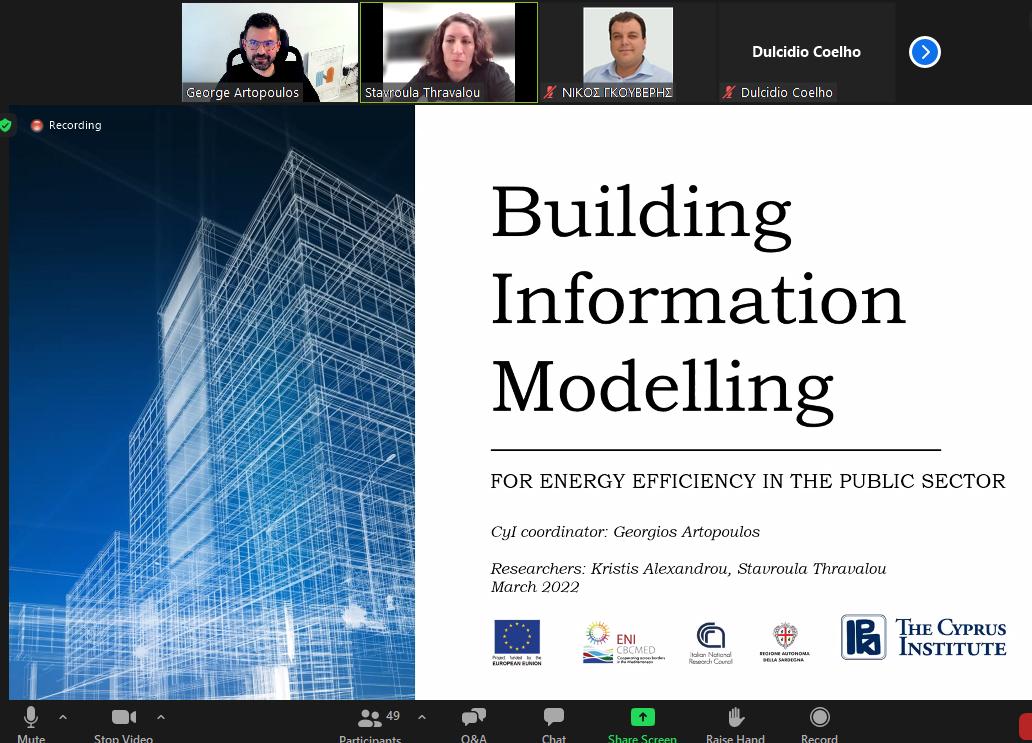Step-by-step explanation of the BEEP project through the Cyprus pilot building during a workshop

The Cyprus Partner, The Cyprus Institute (CyI), participated in the joint workshop “Business Information Modeling: Competitive externally funded BIM projects with the participation of Cypriot organisations”, organised by the Scientific and Technical Chamber of Cyprus on 08 March 2022. The BEEP project was presented together with the H2020 ENCORE and RIF INTEGRATED PERISCOPE. Full agenda (click here).
The aim of the workshop was to promote BIM to the local stakeholders of the BEEP, including architects, civil & mechanical engineers, contractors, quantity surveyors, as well as researchers using BIM. The team of the Cyprus Institute introduced the audience to the scope, objectives, activities and local pilot building of the Project, the Club of the British Cavalry, and disseminated current state of development and findings of the study of this critical, for the city of Nicosia, example of built heritage. Most importantly, CyI explained and analysed the proposed steps in the effective solution which was developed by the Partner to overcome the challenges of data interoperability between the Building Information Modeling software tool and Building Performance Simulation.
About the BEEP project:
BEEP project aims at strengthening the use of Building Information Modelling (BIM) to enhance energy efficiency in buildings. The testing of this emerging technology on built heritage will be performed to demonstrate its scalability to the entire building stock. The project will provide public administrations with a powerful method for the energy rehabilitation of public buildings to be supported with private funds through the Energy Performance Contracting (*). The project main outcome will be an innovative methodology based on the integration of emerging technologies tested on 9 heritage public buildings located in Italy, Spain, Cyprus, Jordan, Palestine, Lebanon, and Egypt.
(*) Energy performance contracting (EPC) is a mechanism for organising the energy efficiency financing. The EPC involves an Energy Service Company (ESCO) which provides various services, such as finances and guaranteed energy savings. The remuneration of the ESCO depends on the achievement of the guaranteed savings. The ESCO stays involved in the measurement and verification process for the energy savings in the repayment period. ESCO and energy performance contracting are mostly found in the public sector and to a lesser extent in the industrial and commercial building sectors (Hilke and Ryan, 2012). Source: European Comission.
Follow BEEP project: Web, Facebook, Twitter









